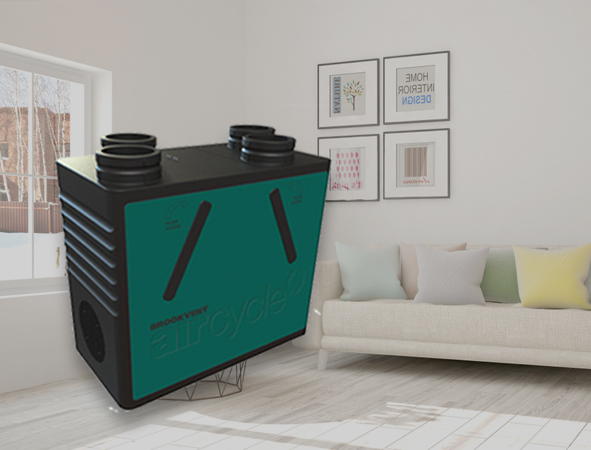In today’s fast-paced world, ensuring a healthy living environment is more crucial than ever. One often overlooked aspect is room air ventilation, which plays a significant role in maintaining a healthy indoor environment. By improving air circulation within your home or workspace, you can reap numerous health benefits. In this blog post, we will explore 12 ways air room ventilation can benefit your health, offering insights into why this simple yet effective practice should not be neglected.
Introduction to Air Room Ventilation
Air room ventilation involves the exchange of indoor air with fresh outdoor air, achieved through natural or mechanical means. It plays a crucial role in controlling indoor air quality by diluting pollutants and regulating moisture levels. Effective ventilation helps reduce the concentration of dust, pollen, and other contaminants, making the air healthier to breathe. By ensuring a steady flow of fresh air, ventilation also helps to prevent mould growth and mitigates the risks associated with high humidity levels. This essential process creates a more balanced and comfortable indoor environment, promoting both physical and mental well-being.
Improved Indoor Air Quality
Proper air room ventilation disperses indoor pollutants, including dust, pollen, and volatile organic compounds (VOCs), significantly improving air quality. These pollutants, commonly found in homes and offices, can cause respiratory issues and allergic reactions if not adequately managed. Ventilation ensures that such harmful particles are diluted and removed from the indoor environment, making the air safer to breathe. For individuals with asthma or allergies, this is especially crucial, as clean air can alleviate symptoms and prevent exacerbations. By maintaining a healthy level of air circulation, you can minimise exposure to these contaminants, fostering a healthier indoor space.
Reduction of Indoor Humidity
Excessive indoor humidity can lead to an environment that promotes the growth of mould and mildew, which are detrimental to respiratory health. Ventilation helps to expel surplus moisture, thereby maintaining balanced humidity levels within your living space. This is particularly crucial in areas like bathrooms and kitchens, where moisture levels tend to be higher. By mitigating indoor humidity, you can prevent the proliferation of dust mites and other allergens that thrive in damp conditions. Proper air circulation also helps to protect your home’s structural integrity, reducing the risk of damp-induced damage to walls, floors, and furnishings.
Enhanced Respiratory Health
Good air room ventilation significantly reduces the concentration of indoor air pollutants, leading to improved respiratory health. These pollutants can irritate the respiratory system, triggering or exacerbating conditions such as asthma, bronchitis, and other chronic respiratory diseases. Effective ventilation removes these harmful particles from the air, ensuring a supply of clean, fresh air. This is especially important for vulnerable groups such as children, the elderly, and individuals with pre-existing health conditions. Regular ventilation can help maintain lung function, decrease the likelihood of respiratory infections, and support overall respiratory well-being.
Mitigation of Odours and Stale Air
Persistent odours from cooking, pets, and household chemicals can create an unwelcoming environment if not addressed. Effective air room ventilation facilitates the removal of these odours by introducing fresh outdoor air, thereby preventing them from becoming trapped indoors. Additionally, ventilation helps combat the buildup of stale air, which can contribute to an unpleasant atmosphere and affect overall comfort. By promoting continuous air circulation, ventilation ensures that your living spaces remain fresh and inviting. This not only improves the sensory quality of your indoor environment but also enhances the overall experience for occupants and visitors alike.
Regulation of Indoor Temperature
Ventilation plays a critical role in regulating indoor temperature by facilitating air movement, ensuring that rooms do not become uncomfortably hot or cold. During warmer months, effective ventilation can create a natural cooling effect, reducing reliance on air conditioning and promoting energy efficiency. In colder periods, it helps to distribute heat evenly, preventing cold spots and enhancing comfort. By maintaining a stable indoor temperature, proper ventilation contributes to a more pleasant and habitable living or working environment. This balance is essential not only for comfort but also for the efficient operation of heating and cooling systems.
Prevention of Condensation and Dampness
Effective air room ventilation plays a key role in preventing condensation and dampness by controlling indoor moisture levels. Inadequate ventilation can lead to condensation on walls and windows, creating an ideal environment for mould and mildew growth. This not only damages the structural integrity of your home but also poses significant health risks. Ventilation helps to disperse excess moisture, particularly in areas prone to high humidity such as bathrooms and kitchens. By ensuring proper air circulation, you can maintain dry and healthy living conditions, reducing the likelihood of respiratory issues and allergen proliferation.
Increased Energy Efficiency
Ventilated rooms can contribute to increased energy efficiency. When air circulates freely, heating and cooling systems do not have to work as hard to maintain a desired temperature, leading to reduced energy consumption and lower utility bills. By improving the distribution of warm or cool air, ventilation allows HVAC systems to operate more efficiently. This efficiency not only results in cost savings but also reduces the environmental impact of energy use. Additionally, well-ventilated spaces tend to feel more comfortable, which means less frequent adjustments to heating or cooling settings. This makes air room ventilation not only a health benefit but also an economically wise choice for households and businesses alike.
Enhanced Sleep Quality – Room Air Ventilation
Proper room air ventilation can significantly improve sleep quality by ensuring a supply of fresh air throughout the night. Fresh air helps regulate body temperature, creating a more comfortable sleeping environment. This is particularly beneficial during warmer months when stuffy rooms can disrupt sleep. Additionally, good ventilation helps remove indoor pollutants and allergens that can cause discomfort or respiratory issues, allowing for a more restful sleep. Adequate air circulation also reduces the risk of dampness and odours that could disturb sleep. Overall, maintaining a well-ventilated bedroom can contribute to deeper, uninterrupted sleep, enhancing overall well-being.
Reduced Risk of Contaminant Buildup
In enclosed spaces, contaminants such as carbon dioxide, smoke, and other harmful gases can accumulate, posing health risks over time. Proper ventilation is essential to dilute and remove these pollutants, ensuring that indoor air remains healthy to breathe. By facilitating the regular exchange of air, ventilation helps to prevent the buildup of these harmful substances, which can otherwise lead to various health issues, including respiratory problems and headaches. Implementing effective ventilation strategies is especially important in areas with limited natural airflow, such as basements and inner rooms. This practice not only enhances air quality but also safeguards the well-being of occupants by maintaining a cleaner, healthier indoor environment.
Promotion of Mental Well-being
Breathing in clean, fresh air can have a substantial impact on mental health. When indoor air quality is poor, it can lead to symptoms such as fatigue, headaches, and difficulty concentrating. These symptoms can detract from productivity and overall mental clarity, creating an environment that feels stifling and oppressive.
Air room ventilation plays a crucial role in ensuring a steady supply of fresh air, which is essential for maintaining mental alertness and a positive mood. Proper ventilation can help reduce the levels of carbon dioxide and other indoor pollutants that can contribute to feelings of sluggishness and cognitive decline. By facilitating the exchange of indoor and outdoor air, ventilation helps create a more stimulating and invigorating environment.
Fresh air can also have a calming effect, helping to alleviate stress and anxiety. The simple act of breathing in clean air can enhance one’s sense of well-being, providing a natural boost to mental resilience. This is particularly beneficial in workspaces or study areas, where mental performance and concentration are paramount. Ensuring adequate ventilation can lead to a more pleasant and mentally enriching indoor environment, making it easier to focus and stay motivated throughout the day.
Additionally, good air quality can help maintain a balanced and harmonious indoor atmosphere, fostering a sense of tranquillity and overall contentment.
Practical Tips for Effective Ventilation
To enhance air room ventilation, begin by ensuring regular air flow by opening windows and doors periodically, particularly during milder weather. Install extractor fans in moisture-prone areas like kitchens and bathrooms to expel excess humidity and reduce the risk of dampness. Consider integrating a mechanical ventilation system to maintain consistent air exchange, particularly in well-sealed modern homes.
Keep vents and air ducts clear of obstructions and ensure they are cleaned regularly to prevent the buildup of dust and other pollutants. Use high-quality air filters and replace them as recommended to optimise the performance of your HVAC system. Additionally, utilise ceiling fans to aid air circulation, helping to evenly distribute warm or cool air throughout the room.
Incorporate plants into your indoor spaces, as they can naturally improve air quality by absorbing carbon dioxide and releasing oxygen. Positioning furniture to avoid blocking air vents can also enhance ventilation efficiency. Finally, during extreme weather conditions, use dehumidifiers or humidifiers to maintain optimal indoor humidity levels, complementing your ventilation efforts and contributing to a healthier living environment.
Conclusion
Incorporating effective room air ventilation into your home or workspace can greatly enhance your overall health and well-being. By maintaining proper air circulation, you’re not only improving indoor air quality but also reducing humidity, promoting mental clarity, and creating a more comfortable and energy-efficient environment. Prioritizing ventilation may seem simple, yet its health benefits are profound, making it an essential part of a healthy lifestyle. Small changes, such as opening windows regularly or installing ventilation systems, can lead to significant improvements, providing cleaner air, better respiratory health, and enhanced living conditions for everyone.
FAQs
What are the best ways to improve room air ventilation?
Improving room air ventilation can be achieved by opening windows and doors regularly, especially during mild weather. Installing extractor fans in bathrooms and kitchens, using ceiling fans, and keeping air vents clear of obstructions are also effective ways to maintain good airflow.
How does poor ventilation impact health?
Poor ventilation can lead to a buildup of indoor pollutants such as dust, allergens, and VOCs, which can irritate the respiratory system and lead to conditions like asthma, allergies, and even headaches. It can also create a humid environment that encourages mold growth, further harming respiratory health.
Can air room ventilation help with allergies?
Yes, air room ventilation can significantly help with allergies by diluting and expelling indoor allergens, such as dust, pollen, and pet dander. Regular air exchange reduces the concentration of these irritants, creating a cleaner indoor environment and relieving allergy symptoms.
Is it necessary to use mechanical ventilation in modern homes?
While it’s not strictly necessary, mechanical ventilation systems can be highly beneficial in modern, well-sealed homes where natural airflow may be limited. These systems help maintain consistent air exchange, ensuring that indoor air remains fresh and free of pollutants.
How often should I replace HVAC filters for optimal ventilation?
It’s recommended to replace HVAC filters every 3 months or as advised by the manufacturer. Regular replacement ensures that the HVAC system can filter out dust and pollutants effectively, contributing to better indoor air quality and improved ventilation efficiency.



